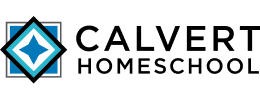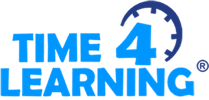No, you do not need a teaching degree to homeschool your child. However, it's important to have a good understanding of the subject matter you will be teaching and to be willing to put in the time and effort required to provide a quality education for your child.
Choosing a curriculum for your child can be overwhelming, as there are many options available. Consider your child's learning style, interests, and academic strengths and weaknesses when selecting a curriculum. You may also want to read reviews and speak to other homeschooling parents to get their recommendations.
There are many different homeschooling methods available, including traditional, classical, unschooling, Montessori, and more. Each method has its own unique approach to education, so it's important to research and choose the one that best aligns with your child's needs and your teaching style.
Homeschooled children can socialize with peers through a variety of activities, such as sports teams, music lessons, community classes, co-op groups, and play dates with other homeschooling families. Many areas also have homeschooling support groups that organize social events and field trips.
Homeschooled students have been found to perform just as well, if not better, than traditionally-schooled students in college. Many colleges and universities actively recruit homeschoolers and are familiar with their unique educational backgrounds. However, it's important to make sure your child completes all necessary requirements for college admission and to provide opportunities for college-level coursework and test preparation.
What Are the Best Accredited Homeschool Programs and Online Schools for 2026?
With an abundance of resources available, online homeschool programs provide parents with an easy and cost-effective way to teach their children at home. Not only do these programs help ensure that students meet national standards for their age group, but they also offer opportunities for parents and children to explore new learning styles and subjects.
As homeschooling continues to grow in popularity, so do the options for online programs and curriculums. Whether you're looking for SAT prep for your high school student, ways to keep your toddlers engaged and educated, or hoping your elementary-aged kids won't fall behind in their studies, there are plenty of excellent options available.
With these options, you can rest assured that your child is getting a quality education from the comfort of your own home.
Our Top 10 Best Online Accredited Homeschool Programs:
- Calvert - Best for proven objectives-based curriculum
- K12 - Best for tailored homeschool programs
- Bridgewater - Best for accredited programs for all learners
- The Keystone School - Best for complete or supplemental education
- Time4Learning - Best for affordable online homeschooling
- Forest Trail Academy - Best for accredited secular and Christian programs
- Laurel Springs School - Best for personalized curriculum
- Oak Meadow - Best for pioneering secular homeschooling
- Liberty University - Best for Christian faith-based learning
- Houghton Mifflin Harcourt - Best for Saxon method learning
Our Picks for the Best Accredited Homeschool Programs - Reviews:
1. Calvert
Calvert has been providing homeschool programs for 110 years. Given its experience, it’s no surprise Calvert provides the closest thing to traditional objective-based learning at home. Each lesson plan begins with a goal, teaches to that goal, and ends with a short quiz to check the goal has been reached. Calvert has a printed workbook curriculum for grades K-2 and online curriculum for grades 3-12.
Pricing: Grades K-2: $160-380 annual fee; Grades 3-12: $320 yearly fee for full homeschool curriculum, $40 for individual courses.
Core subjects: Language arts, math, science, history & geography, electives
Accreditations: Middle States Association of Colleges and Schools, Maryland State Department of Education
2. K12
K12 provides online homeschool courses tailored to the age and skills of your children. From K-8, it offers the option of independent or teacher-led learning. From 9-12, only teacher-led online learning is offered. Given the high tuition fees, K12’s teacher-led program is like a private school your kids attend from home. However, the level of personalization and impressive selection of electives (e.g. personal finance, sports, photography) make the price worthwhile.
Pricing: Most courses cost $260-450 for unlimited 12-month access. Price rises to $900+ when courses are teacher-led.
Core subjects: Language arts, math, science, history, art, music, world languages, electives
Accreditations: Cognia (parent organization of NCA CASI and SACS CASI).
3. Bridgewater
Bridgewater has a homeschooling solution to suit everyone. At each year level, it offers a choice of four types of learning: grade-level printed learning kits, customized independent study; self-paced online learning, and teacher-led live online classes. It offers a core homeschool curriculum, as well as the following specialized homeschool programs: Christian home school programs, student athletes and performers, programs for students with learning disabilities, programs for military families, international homeschooling, and programs for missionary families.
Pricing: Annual tuition varies from $700-$900/year for grade-level learning kits. Online courses range from $350-$700 per individual course.
Core subjects: Language arts, math, science, social studies, electives
Accreditations: Cognia, National Association of Private Schools, and Pennsylvania Department of Education
4. The Keystone School
Keystone National High School is a private correspondence and online distance school based in Pennsylvania. Students can obtain a complete education (and earn accredited middle school and high school diplomas) at Keystone or take courses to supplement another high school or homeschool program. Learning can be done offline with homeschool books or online with teacher-led virtual classes. In addition to its K-12 program, Keystone also offers career school diplomas for adults.
Pricing: Full yearly tuition costs $1,800-$2,800. Individual courses start from $230 for offline and $290 for online.
Core subjects: Language arts, math, science, social studies, electives
Accreditations: Cognia, Middle States Association of Colleges and Schools
5. Time4Learning
Time4Learning offers affordable, engaging, and interactive online learning programs for kids from pre-K through to 12th grade. It can be used as a full curriculum corresponding to state standards or as a supplement to your child’s regular school or homeschooling curriculum. The curriculum is suitable for a broad range of student types, learning styles, and homeschooling methods. Parents get access to printable lesson plans, teaching tools, and detailed reporting.
Pricing: $19.95/m for students from Pre-8 through to 8th grade, $30/m for grades 9-12. Prices for individual classes vary.
Core subjects: Language arts, math, science, social studies, world languages
Accreditations: None
6. Forest Trail Academy
Forest Trail Academy is another of the top accredited homeschool programs issuing universally accepted high school diplomas. It offers a choice of secular homeschool correspondence courses, Christian homeschool correspondence courses, or instructor-led online learning. The correspondence courses are self-paced courses with a book-based curriculum comprising interactive, printable worksheets.
Pricing: Correspondence programs cost $950 per grade level. Online homeschooling costs $1,900/y for K-5, $2,600/y for 6-8, and $3,200/y for 9-12.
Core subjects: Language arts, writing, math, science, social studies, handwriting, and character education
Accreditations: Cognia
7. Laurel Springs School
Laurel Spring is another great choice for any parent looking for a correspondence homeschool program or online homeschool program for their kid. The number one reason to choose Laurel Springs School is for its selective online learning program, known as ‘The Academy’. This program for distinguished students in grades 6-12 offers a personalized curriculum built around each student’s interests, talents, and passions. It includes college prep courses, honors and AP courses, world language courses, college credit courses, and one-on-one academic counselling.
Pricing: Annual tuition for regular curriculum $1,900 for elementary school, $2,600 for middle school, and $3,200 for high school. Annual tuition for The Academy is $9,000 for middle school and $13,000 for high school.
Core subjects: English, math, science, history, art, world languages
Accreditations: Western Association of Schools and Colleges
8. Oak Meadow
Oak Meadow is one of the few exclusively secular homeschool curriculum providers on the market. It’s heavily inspired by the Waldorf philosophy, which seeks to instill a sense of wonder and reverence for creation within each student – but without adhering to any specific religious beliefs. Its grade-level correspondence programs are creative, hands-on, and rigorous, and include many nature-based projects from the early grades.
Pricing: From K-8, there are two choices: $745 for the full curriculum or $120 for individual 36-week courses. From 9-12, courses are sold separately, starting from $115.
Core subjects: English, math, science, social studies, fine arts, health & PE
Accreditations: Middle States Association of Colleges and Schools, North Central Association Commission on Accreditation and School Improvement, Western Association of Schools and Colleges, Northwest Association of Accredited Schools, Southern Association of Colleges and Schools, Approved Distance Learning School in the State of Vermont.
9. Liberty University
Liberty University is the best homeschool program from among a range of different Christian homeschool correspondence options on the market. Founded in 1972, Liberty University offers a comprehensive biblically based curriculum for preschool through to grade 12, complete with textbooks and teaching aids. Its teacher-directed framework empowers teachers and parents to focus students’ attention on the material they need to learn – and in a sequence that will help them learn it best.
Pricing: Annual tuition starts at $270 for kindergarten and rises to up to $1,290 for high school. Prices for individual courses vary.
Core subjects: Language arts, math, science/health, history/geography, bible, electives
Accreditations: Florida Association of Christian Colleges and Schools, Middle States Association of Colleges and Schools
10. Houghton Mifflin Harcourt
Houghton Mifflin Harcourt has a range of courses based on the Saxon teaching method of incremental learning. Its specialty is math, although it also has a range of kits on other subjects. HMH doesn’t offer a comprehensive free homeschool curriculum or a paid one. Rather, its kits are best used to supplement your child’s traditional school or homeschool education.
Pricing: Kit prices vary
Core subjects: Math, English, Spanish
Accreditations: None
Getting Started with Home Schooling
Home schooling has seen an unprecedented surge in popularity. In fact, it is now the fastest-growing form of education across America, with estimates indicating that over 3 million school-age students are currently enrolled for the 2022-2023 academic year! This number is more than double compared to new enrollments in public and private schools combined, showcasing just how quickly this alternative educational option is taking off.
Home schooling is becoming increasingly popular as it is a great way to customize your child’s education and make learning enjoyable. With this guide, you will find the necessary steps to take in getting started with home schooling, along with an array of top-notch resources for curriculum and products that can help contribute to your success. Get ready; let's begin!
- Decide why you’re home schooling. Home schooling can provide many benefits for your family and offers a variety of educational options. Think about the reasons why you want to home school – is it because of individualized attention, more meaningful learning experiences, increased travel opportunities, or something else? Once you identify your priorities, finding an appropriate teaching style becomes easier. Consider curriculums focused on biblical views versus those offering secular subjects; decide if a self-paced education suits best or if advanced classes are needed; explore what’s available in rural locations too! By taking time to determine WHY home schooling makes sense for YOUR family now – not just anyone's – you will be better able to choose an ideal solution that meets all needs.
- Create a plan. As you create your homeschooling journey, it is important to have a loose plan in place. Establish how long you will wait before evaluating if the curriculum is working for your family or not; decide on how many hours each day should be dedicated to home schooling and which activities must happen every week (i.e., sports, music, or religion). Additionally, determine where records of accomplishments can be stored and what type of information needs recording. Keep in mind: You are learning as much as they are!
- Decide when to start home schooling. Home schooling is an increasingly popular option for many families, and starting out can be daunting. It’s important to consider your priorities when choosing the right program: from calendar-based semesters to flexible options that fit around family life – there are a variety of resources available! Take some time now to determine which direction best suits you and get ready for learning at home.
- Choose a home school method. Finding the best home school method for your family can seem like an overwhelming task. From Classical, Unschooling, and Charlotte Mason to tech-savvy Road Schooling or Online Public School – there’s something out there that meets every need! Learn more about each type of homeschool by taking a look at this comprehensive guide: https://www.howtohomeschool.com/homeschool-advice/types-of-homeschooling
- Learn how your children learn. Understanding how your kids learn is a great way to equip them with the skills they need for success. Each individual has unique learning styles, which are generally visual, auditory, reading and writing, or kinesthetic based. Take some time to discover what works best for each of your children to provide them with tailored resources and curriculum that will help foster their growth academically!
- Find support. Starting a homeschooling journey is an exciting yet daunting task, so be sure to utilize all the resources available for support! Look online through search engines and social media groups like Facebook Groups – you’d be amazed at the number of local community networks that are eager to help. Not only will these homeschool groups provide amazing insight into this new adventure, but they also become great places of fun as your family grows in experience; nothing quite beats helping someone else learn the ropes while maintaining connections with families
Curriculum Choices:
When it comes to choosing a curriculum for homeschooling, there are many options available. Some popular choices include:
- Traditional Textbooks: This is the most common curriculum choice for homeschoolers, as it closely resembles the curriculum used in public and private schools. Textbooks provide a structured, organized approach to learning and often come with accompanying workbooks and teacher guides.
- Unit Studies: Unit studies are a popular choice for homeschoolers who prefer an integrated approach to learning. With unit studies, students explore a specific topic in depth, integrating multiple subject areas such as history, literature, and science.
- Online Learning: Many homeschooling families are turning to online learning as a way to access a wide variety of courses and resources. Online learning allows students to work at their own pace and often provides interactive features such as videos, quizzes, and games.
- Charlotte Mason Method: This method emphasizes the use of living books, nature study, and narration. Students are encouraged to explore the world around them and to make connections between what they are learning and their own lives.
Homeschooling Methods:
There are many different homeschooling methods that families can choose from. Some popular methods include:
- Classical Education: This method emphasizes the study of classical literature, history, and languages. It is based on the belief that there is a set body of knowledge that every student should master in order to become an educated person.
- Montessori Method: This method emphasizes hands-on learning and self-directed exploration. Students work with specially designed materials to develop their own understanding of concepts and ideas.
- Unschooling: This method emphasizes student-led learning, with the student pursuing their own interests and passions. There is no set curriculum or schedule, and the focus is on creating a rich, immersive learning environment.
Socialization Opportunities for Homeschoolers:
One concern that many people have about homeschooling is the lack of socialization opportunities for students. However, there are many ways that homeschoolers can socialize and interact with other students. Some popular options include:
- Co-ops: Homeschooling co-ops are groups of families who come together to provide educational and social opportunities for their children. Co-ops can offer classes, field trips, and other activities.
- Sports Teams: Many homeschoolers participate in local sports teams, either through their local public school or through community organizations.
- Community Service: Volunteering is a great way for homeschoolers to meet new people and give back to their communities.
Clubs and Organizations: Homeschoolers can participate in a wide variety of clubs and organizations, from 4-H clubs to scouting groups to music ensembles.
Planning for your Child's Success
So, those are our top 10 best online homeschool options and programs. Remember to consider your child’s individual needs and learning style when making your decision, and don’t be afraid to ask for advice from other homeschooling parents. With the right curriculum, your child can thrive in the homeschool environment.
Homeschooling your child can be a very different experience than the one offered by public schools or private schools, but you can still make learning a great experience for them. If you do it alone, you can invest in lesson planning and fun field trips. But these homeschool resources, planned by certified teachers, can truly help child learning in grades K-12.
You May Also Like:
Top 10 Online Summer Schools
Top 10 Language Learning Apps
Top 10 Online Learning Sites
Top 10 Math Apps for Kids









